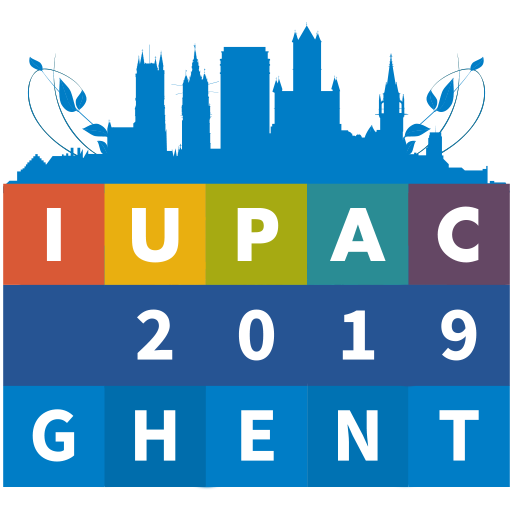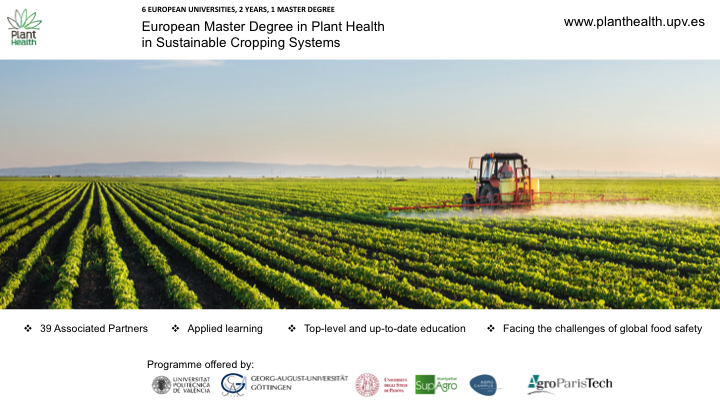The European Master Degree in Plant Health in Sustainable Cropping Systems (PlantHealth) is a 2‐ year programme that offers to its participants the unique opportunity to study plant health in an international setting at two of Europe’s leading institutions in this field, obtaining a double diploma. It combines highly specialised training, international prestigious Lecturers, Field Trips and other practical learning. It aims to training young, bright minded and internationally active students, so that they can contribute to the development of their home countries through their agricultural expertise and passion.
PlantHealth has been labelled Erasmus Mundus Joint Master Degree by the EACEA and is therefore recognised as the European education programme of excellence in the field of plant health.
PlantHealth Master is delivered by a consortium of 6 European Universities in France, Germany, Italy and Spain. The consortium is coordinated by the Polytechnic University of Valencia in Spain.
The third call for self‐funded students is now open up to end of June 2018.
Please feel free to circulate this call in your networks and let us know about the scholarship programs that could further support students.
You will find the calls here: www.planthealth.upv.es
.

















